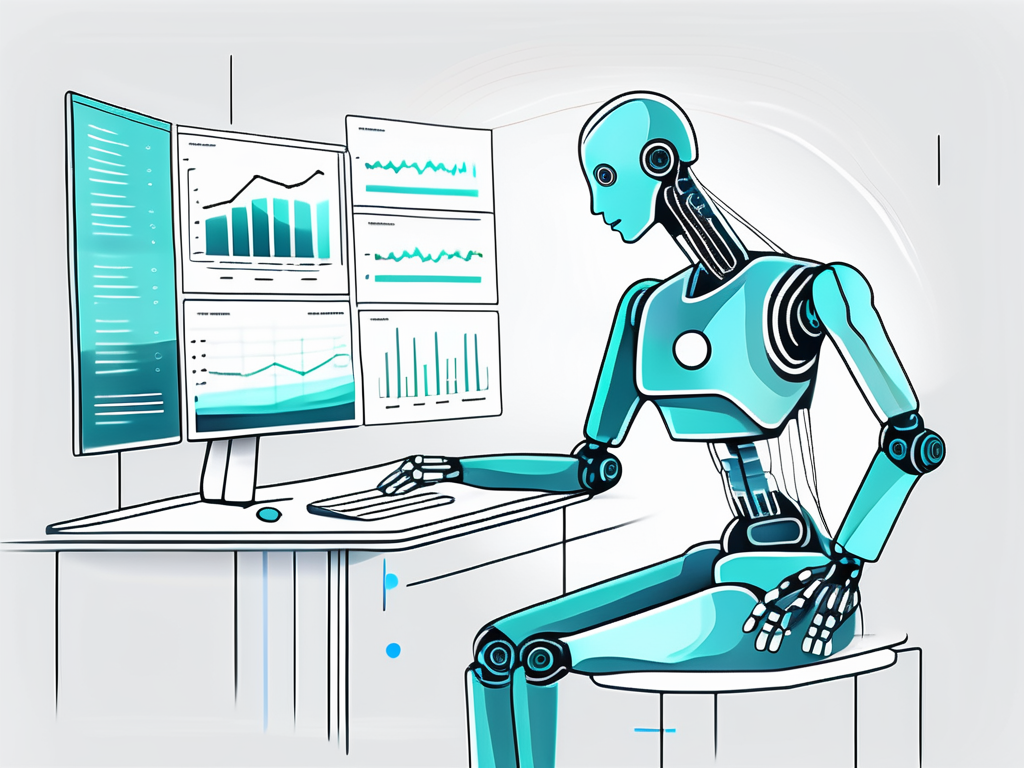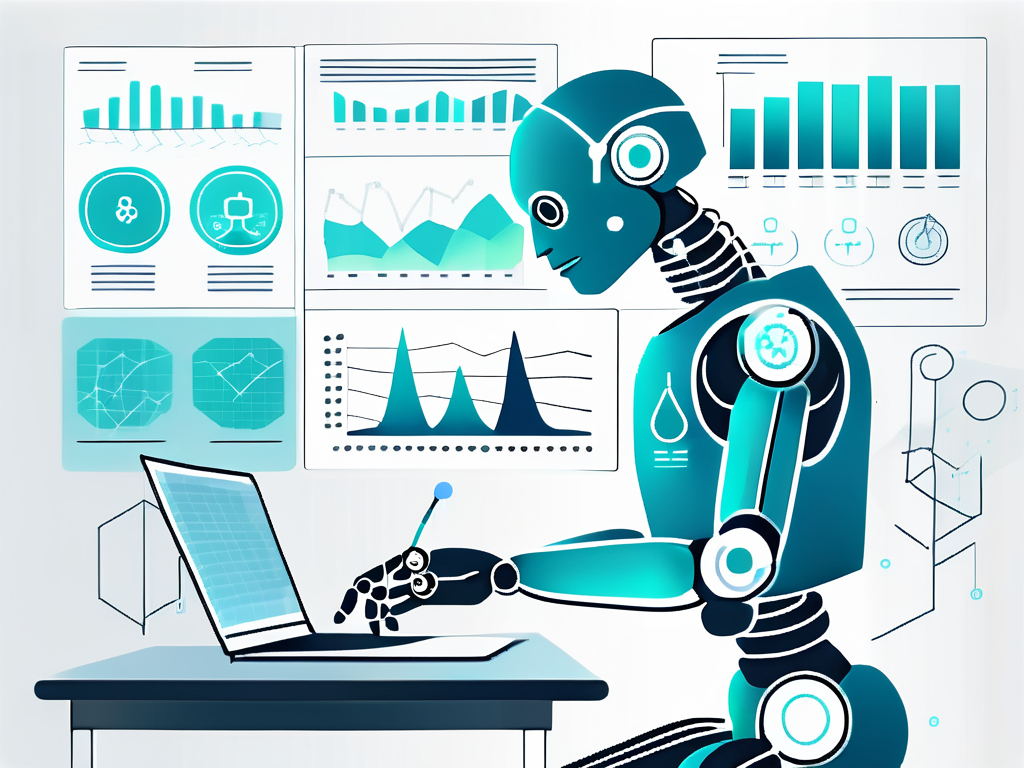Artificial intelligence (AI) is rapidly transforming various industries, and the healthcare sector is no exception. The integration of AI technologies in healthcare business planning has the potential to revolutionize the way healthcare providers operate, from improving patient care and outcomes to streamlining administrative processes. To fully comprehend the impact of AI on healthcare business planning, it is crucial to establish a clear understanding of what AI entails in a healthcare context and how it has evolved over time.
Understanding Artificial Intelligence in Healthcare
Defining AI in a healthcare context involves recognizing its ability to simulate human intelligence, allowing machines to perform tasks that typically require human intelligence, such as data analysis, pattern recognition, and decision-making. The application of AI in healthcare has significantly advanced, largely driven by the exponential growth of data and computational power.
Artificial intelligence in healthcare is a rapidly evolving field that holds immense potential to revolutionize the way medical services are delivered. By harnessing the power of AI, healthcare professionals can streamline processes, improve diagnostic accuracy, and enhance patient outcomes. The integration of AI technologies into healthcare systems has the potential to not only reduce costs but also save lives through early detection and personalised treatment plans.
Defining Artificial Intelligence in a Healthcare Context
Artificial intelligence in healthcare encompasses a range of technologies, including machine learning, natural language processing, and computer vision. These technologies enable AI systems to learn from data, understand and interpret human language, and recognize and analyze visual information.
Machine learning algorithms, a subset of AI, play a crucial role in the healthcare industry by analysing complex medical data to identify patterns and trends that may not be apparent to human practitioners. Natural language processing allows AI systems to extract valuable insights from unstructured medical text, such as clinical notes and research papers, aiding in decision-making processes. Furthermore, computer vision enables machines to interpret and analyse medical images with a level of accuracy that can rival, and in some cases surpass, human capabilities.
The Evolution of AI in the Medical Field
The development of AI in healthcare has been influenced by several key factors. Technological advancements, such as the availability of big data and the advancement of deep learning algorithms, have played a significant role. The proliferation of electronic health records and the digitization of medical data have provided a wealth of information for AI systems to analyze and learn from. Additionally, collaborations between healthcare providers, academic institutions, and technology companies have facilitated groundbreaking research and the development of innovative AI solutions.
The evolution of AI in the medical field is a testament to the collaborative efforts of multidisciplinary teams working towards a common goal of improving patient care and advancing medical research. As AI continues to mature and integrate into various aspects of healthcare delivery, it is essential for stakeholders to address ethical considerations, data privacy concerns, and regulatory frameworks to ensure the responsible and effective implementation of AI technologies in the healthcare sector.
The Impact of AI on Healthcare Business Planning
The integration of AI into healthcare business planning offers numerous benefits, from improving strategic decision-making to enhancing operational efficiency.
Artificial Intelligence (AI) has revolutionised the landscape of healthcare business planning, ushering in a new era of possibilities and opportunities. The application of AI technologies in the healthcare sector has not only streamlined operations but has also significantly improved patient outcomes and experiences.
AI and Strategic Decision-Making in Healthcare
AI technologies can analyze vast amounts of data and generate valuable insights, aiding healthcare business leaders in making informed decisions. For instance, AI-powered predictive analytics can help identify patient populations at risk of developing certain conditions, enabling healthcare providers to allocate resources appropriately and offer proactive care. Data-driven insights can also inform investment decisions, helping healthcare organizations prioritize areas of growth and development.
Moreover, AI’s impact on strategic decision-making extends beyond individual patient care. It plays a crucial role in shaping population health management strategies by identifying trends, predicting outbreaks, and recommending interventions to improve overall community health.
The Role of AI in Operational Efficiency
AI can assist healthcare organizations in streamlining their operations and optimizing resource allocation. For example, AI-powered scheduling systems can effectively manage patient appointments, minimizing waiting times and maximizing efficiency. Furthermore, AI applications can automate routine administrative tasks, freeing up healthcare professionals’ time to focus on patient care and complex tasks.
Furthermore, AI-driven operational efficiency in healthcare extends to inventory management, where predictive algorithms help in maintaining optimal stock levels of medications and medical supplies. By leveraging AI for inventory control, healthcare facilities can reduce wastage, prevent stockouts, and ensure seamless continuity of care for patients.
The Potential Benefits and Challenges of AI in Healthcare Planning
While AI offers immense potential in healthcare business planning, it is essential to consider both the advantages and challenges it presents.
Artificial Intelligence (AI) has revolutionised the landscape of healthcare planning, offering a myriad of benefits alongside some notable challenges. The integration of AI in this sector has the potential to transform patient outcomes, streamline processes, and enhance overall efficiency. However, it is imperative to delve deeper into the complexities surrounding AI implementation in healthcare.
Exploring the Advantages of AI Integration
The integration of AI in healthcare planning can lead to improved patient outcomes, reduced costs, and increased operational efficiency. With the ability to analyze vast amounts of data, AI systems can detect patterns and trends that may not be readily apparent to human operators. This can aid in early disease detection, personalized treatment planning, and improved clinical decision-making.
Furthermore, AI has the capability to enhance predictive analytics, enabling healthcare providers to anticipate potential health issues and intervene proactively. By harnessing the power of AI algorithms, healthcare organisations can optimise resource allocation, enhance patient care pathways, and ultimately drive better health outcomes for individuals and communities.
Addressing Potential Obstacles and Ethical Considerations
Despite its potential, the integration of AI in healthcare planning also poses challenges and ethical considerations. Data privacy and security concerns are paramount, as AI systems rely on vast amounts of sensitive patient information. Additionally, there is a need to ensure that AI technologies do not perpetuate biases or exacerbate existing healthcare disparities. Striking a balance between technological advancement and ethical responsibilities is crucial.
Moreover, the ethical implications of AI in healthcare extend to issues such as transparency in decision-making processes, accountability for algorithmic outcomes, and the potential impact on the doctor-patient relationship. As AI continues to evolve and permeate various aspects of healthcare planning, it is essential for stakeholders to engage in ongoing dialogue, ethical reflection, and regulatory oversight to navigate these complex challenges effectively.
Future Prospects of AI in Healthcare Business Planning
The future outlook for AI in healthcare business planning is one of continuous growth and innovation.
Predicting Trends in AI and Healthcare
Advancements in AI technologies, coupled with the increasing availability of healthcare data, are expected to drive further innovations. Machine learning algorithms will further improve their accuracy and ability to make complex predictions, assisting healthcare providers in diagnosing diseases, identifying treatment options, and predicting patient outcomes. The integration of AI with other emerging technologies, such as Internet of Things (IoT) devices and wearables, will further enhance the possibilities for remote monitoring and personalized care.
The Long-term Implications of AI for Healthcare Businesses
As AI continues to evolve and become more integrated into healthcare business planning, it will redefine the roles of healthcare professionals and introduce new opportunities for collaboration. Healthcare organizations that embrace AI early on will gain a competitive edge, as they will be better positioned to leverage the benefits AI brings in terms of cost efficiencies, improved patient experiences, and better outcomes.
Furthermore, the implementation of AI in healthcare business planning will have far-reaching implications for the workforce. While some may fear that AI will replace human jobs, the reality is that it will augment and enhance the capabilities of healthcare professionals. AI-powered tools and systems will assist healthcare providers in making more informed decisions, allowing them to focus on providing compassionate and personalized care to patients.
Moreover, the integration of AI in healthcare business planning will revolutionize the way medical research is conducted. With the ability to analyze vast amounts of data in a short period, AI algorithms can identify patterns and correlations that may have otherwise gone unnoticed. This will accelerate the development of new treatments and therapies, leading to improved healthcare outcomes for patients worldwide.
In conclusion, the role of AI in healthcare business planning is poised to shape the future of the industry. By leveraging AI technologies effectively, healthcare organizations can enhance their decision-making processes, improve operational efficiency, and ultimately deliver better patient care. As the healthcare landscape continues to evolve, it is crucial for businesses to remain adaptable and embrace the potential of AI in order to thrive in this highly dynamic and competitive landscape.
Ready to harness the transformative power of AI in your healthcare business planning? At Clinic Marketing AI, we understand the intersection of healthcare, marketing, and artificial intelligence like no other. Under the leadership of Angelo Rosati, a seasoned expert with a deep passion for health tech, we are committed to elevating your clinic’s growth through excellence and partnership. Don’t just keep pace with the evolution of healthcare—lead it. Book a Call with Us today, and together, we’ll embark on a journey to redefine the future of Your Clinic.




